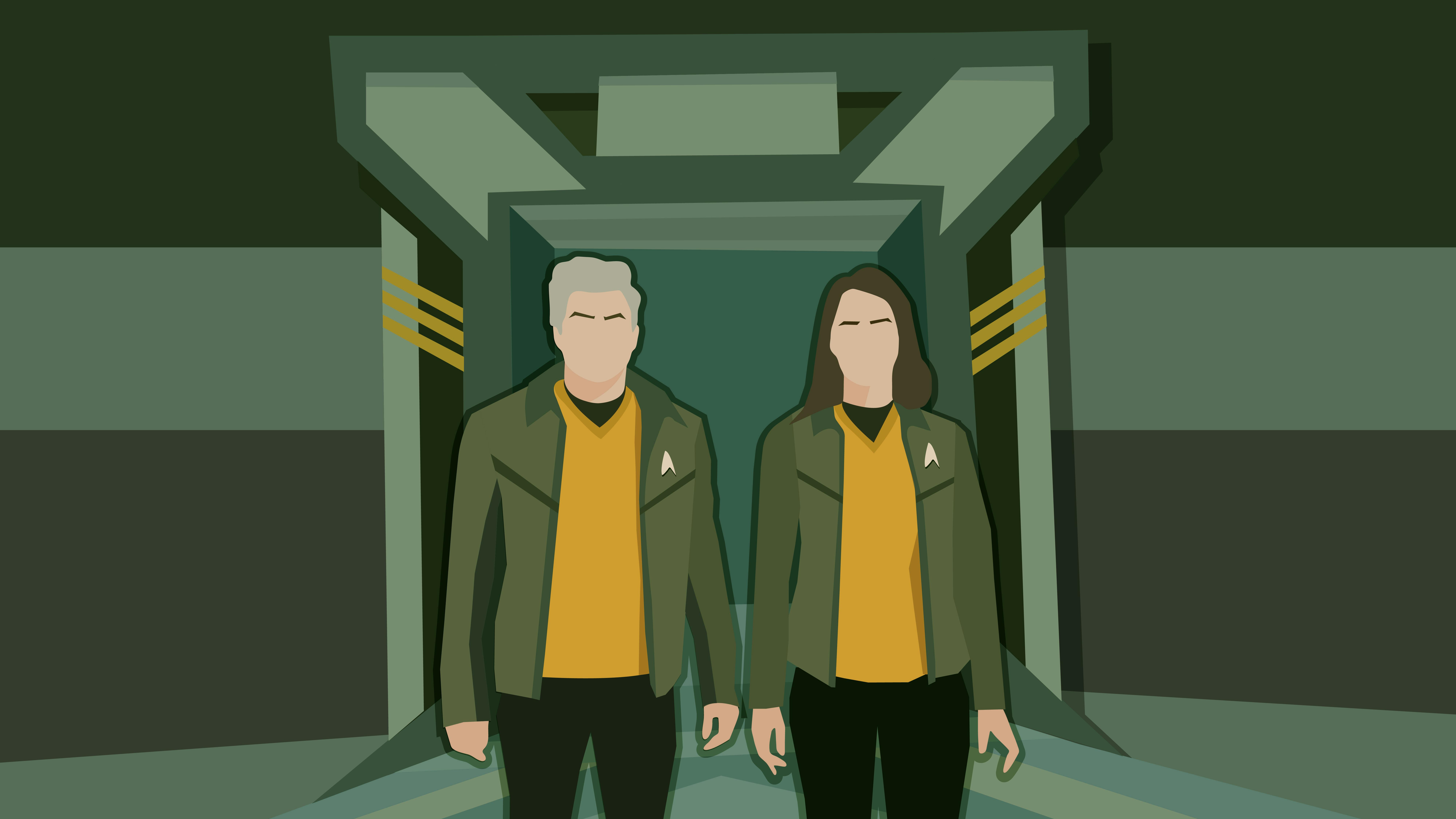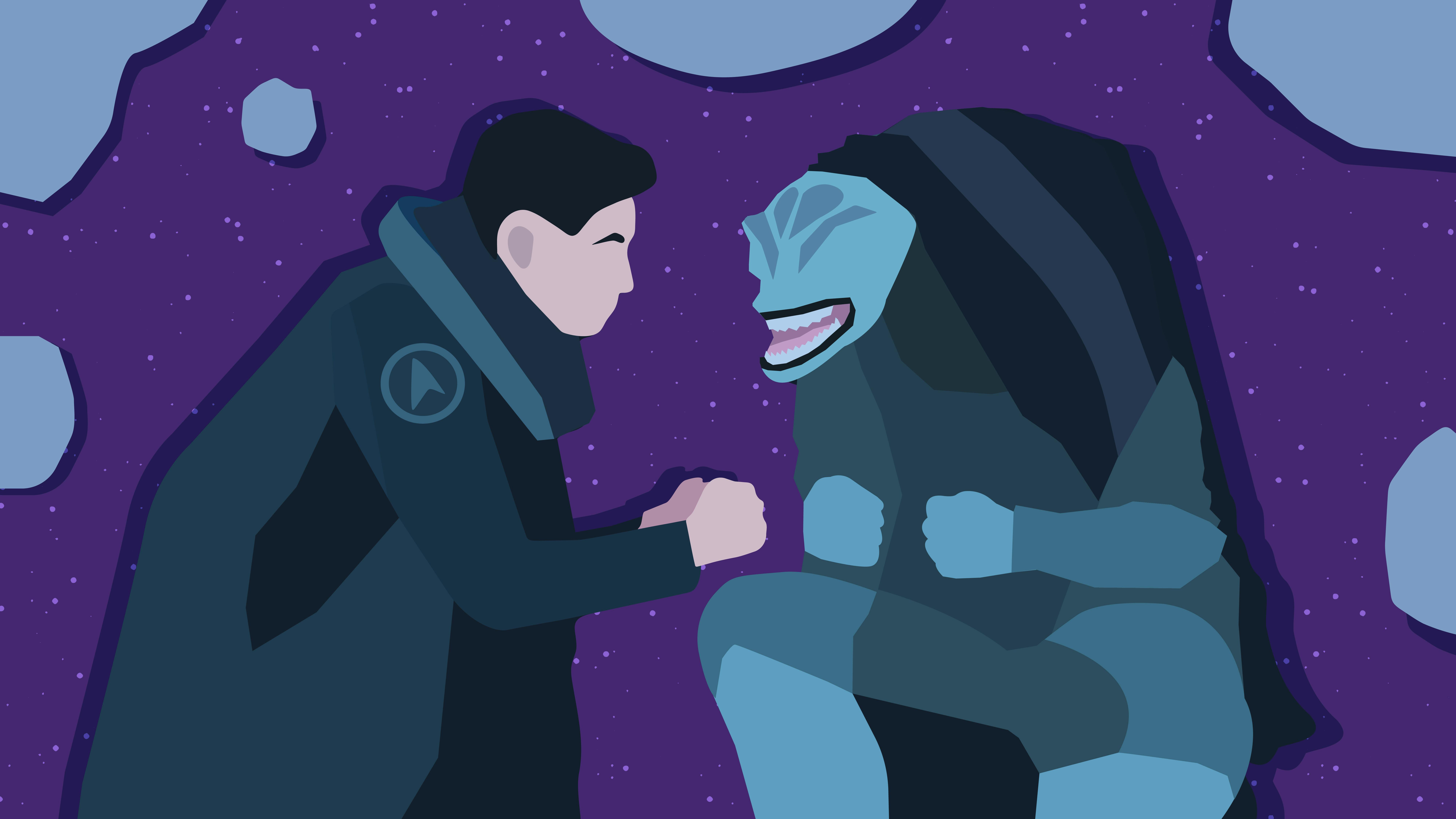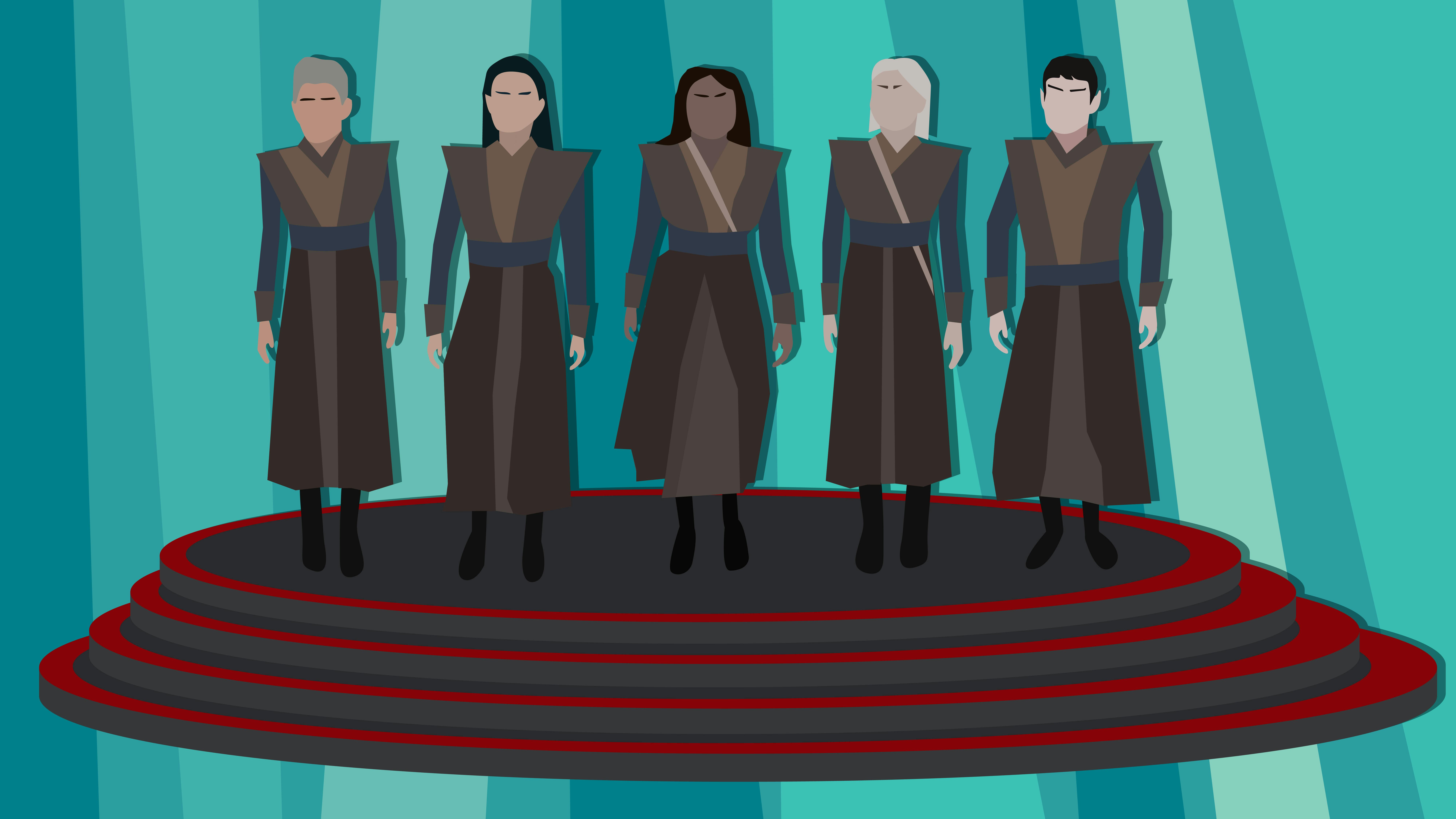Published Feb 13, 2024
'The Measure of a Man' Demonstrates the Many Forms of Love
For its 35th anniversary, we reflect on Will Riker's sacrifice in this classic The Next Generation episode.
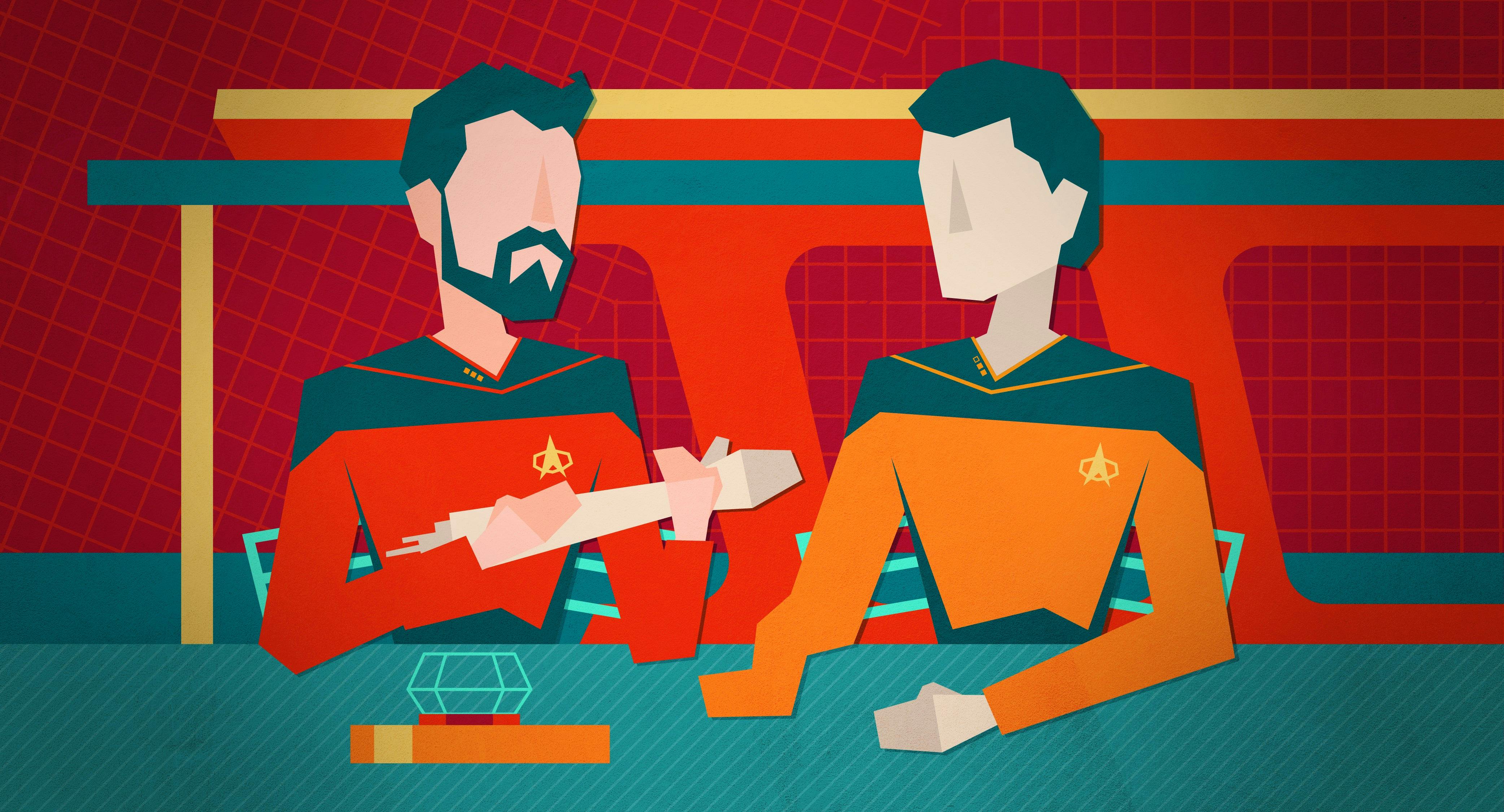
StarTrek.com
To love someone, and to have those feelings returned — romantically or platonically — is a beautiful thing. And there is much joy to be found in it.
But the everyday level of actually loving differs greatly from what has come to be the airy concept of love. Cupid’s bows and love without obstacles make for pleasant fairytales, but real love requires work and self-sacrifice.
Love is a choice to be made every single day. A choice to love in the first place. A choice to go on loving.
Love can be fierce. Sometimes, it asks us, in loving others, to do things that are painful for us. At those times, it would often be easier on us—but not better for the ones we love—to just let the chips fall where they may. Yet another choice to be made.
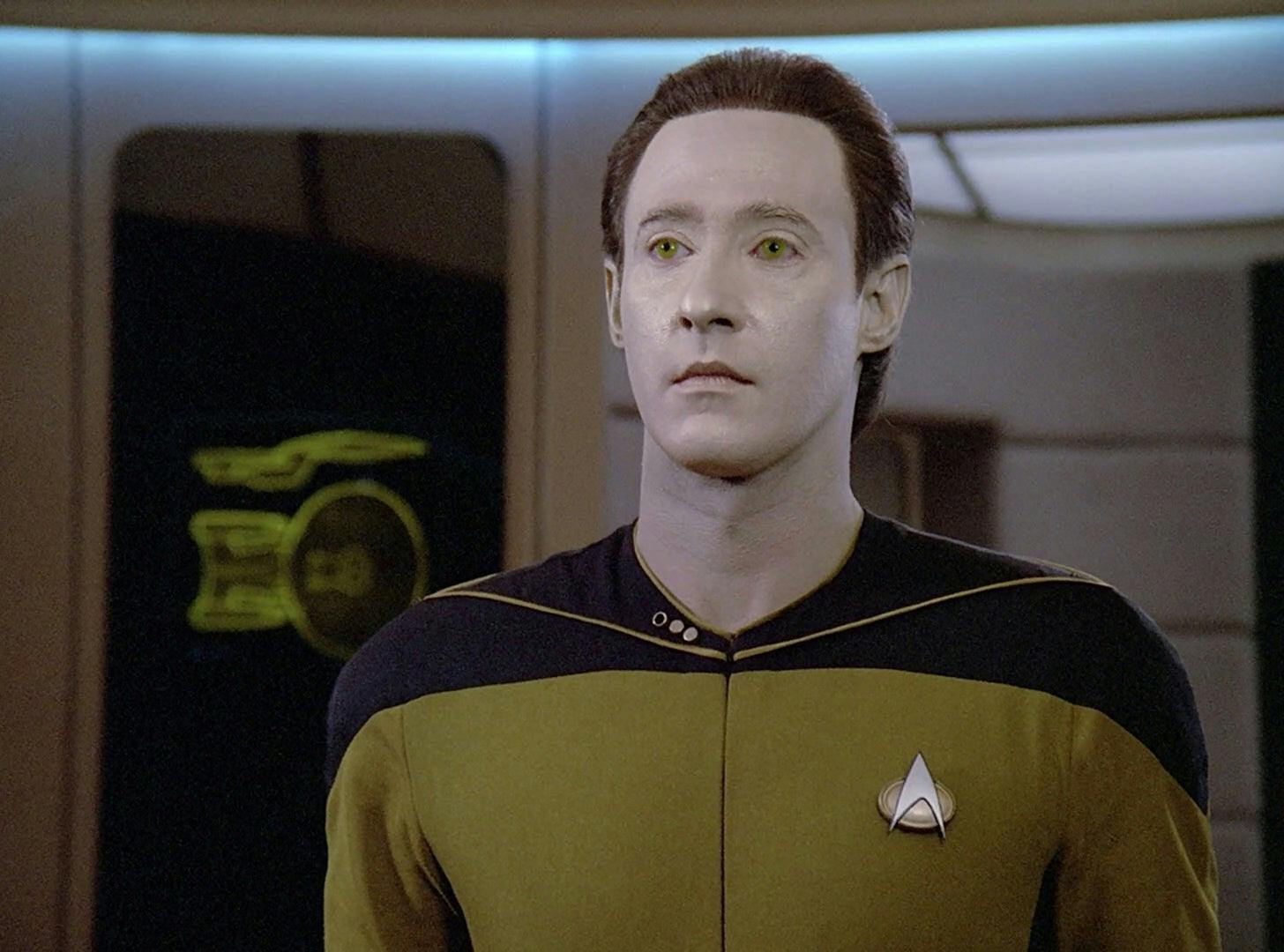
"The Measure of a Man"
StarTrek.com
The bottom line is this. Love hurts. But it’s worthwhile.
"" is one of my very favorite episodes of Star Trek, but I can only watch it when I’m prepared to hurt. (The first time I saw it, I was walking on the treadmill. Do you know how difficult it is to cry and keep yourself from falling off a treadmill? I do now!)
In all seriousness, "The Measure of a Man" offers no emotional downtime. In minutes, we’re hit with, "Commander Maddox is here to work on your android" — a statement implying possession, as if Captain Picard owns Data — and, from there, it holds nothing back.
It is a beautiful episode, but it’s a painful kind of beauty.
Star Trek always asks the big questions. In "The Measure of a Man," the focus is "What makes someone human?" Is Data the property of Starfleet? A toaster? A disposable creature with a throwaway existence, made to do the hazardous, dirty work and valuable only for how “it” can serve? The first in a vast line designed by Maddox to act as human eyes and hands in dangerous situations? As Guinan says, “An army of Datas all disposable. You don’t have to think about their welfare. You don’t think about how they feel. Whole generations of disposable people.”
Star Trek History: The Measure of a Man
They are horrible questions, all of them, but how they are resolved is what makes this episode a classic.
However, underneath this, there is another current to which I find myself drawn. Data is the focus, as he should be, but I have always been captivated by what Riker experiences here. Through Riker, “The Measure of a Man” deals with a crucial aspect of love, friendship, and caring, which is often left unattended because it is such a distressing thing, both to watch and to experience.
Riker is flung face first against a choice that causes him great pain. If there is to be any chance of saving Data from experimental refit, cementing his right to autonomy, and proving his identity as a sentient being, Riker must prosecute the case. But “prove your friend and fellow officer to be an object and a piece of property” is not part of the job description for a Starfleet Commander.
It wasn’t something Riker woke up that morning planning to do. He didn’t just say to himself: “You know what? Today, I think I’ll ruthlessly show that Data is just a worthless piece of machinery made to serve humans. Why not?”
No. It is an unthinkable thing to him. But, for the sake of his friend, it quickly becomes something he has to do. For Riker, reality — as Data says about games of chance — very suddenly “bore little resemblance to the rules.”
I could call many parts of this episode my favorite — the moment Data and Geordi share about Data’s resigning from Starfleet, Guinan’s conversation with Picard. But my very favorite point is a tiny detail, lasting no longer than eight seconds, immediately before the hearing convenes.
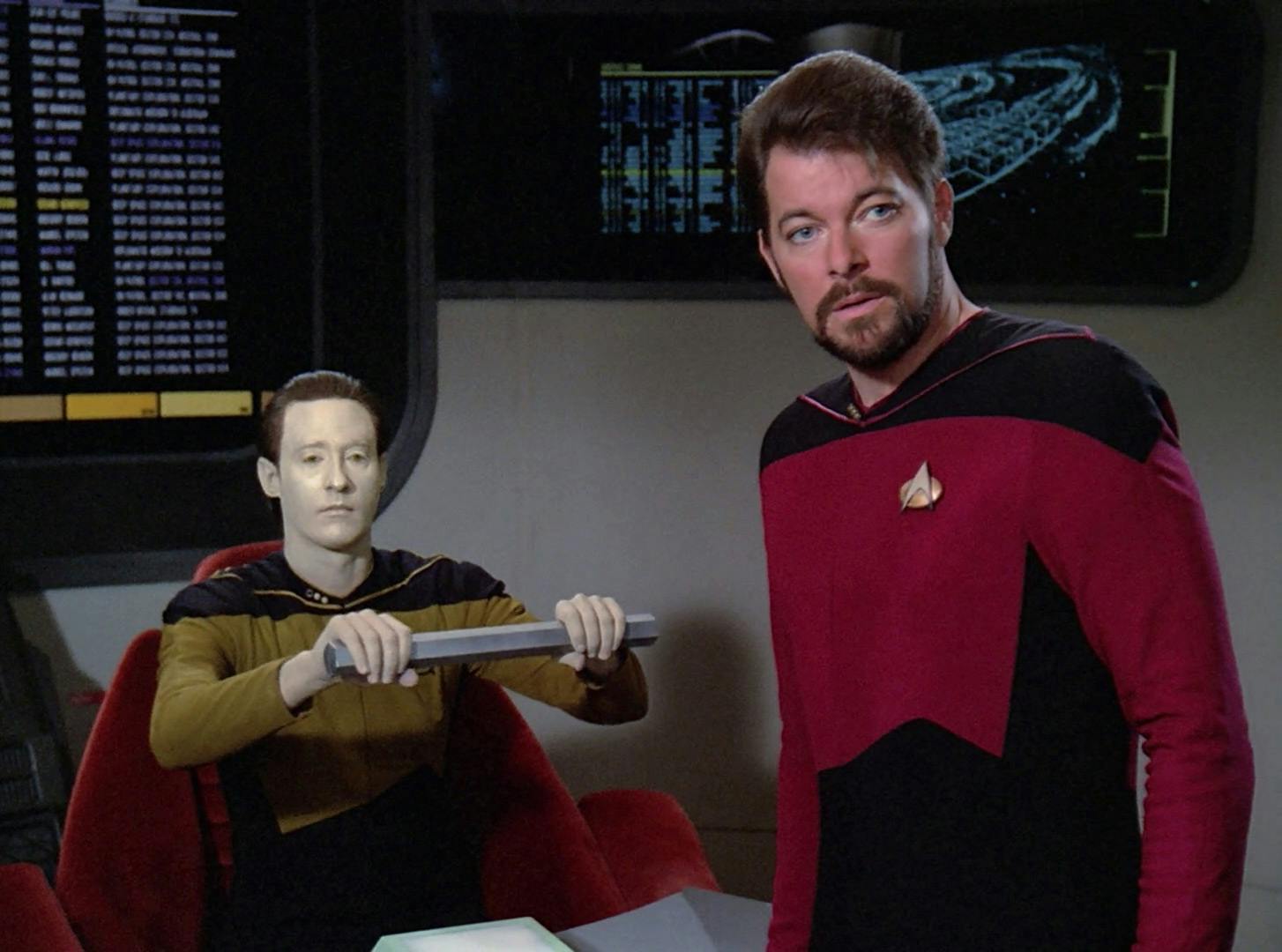
StarTrek.com
Riker asks the computer to bring up Data’s technical schematics. When they load, he smiles. He’s looking at something amazing—something incredible, something that is beautiful to him. But, almost immediately, the smile fades because he knows that he is about to use all those marvelous things against his friend. It is a fabulously acted scene.
Personally, I find it difficult to watch the actual hearing. As I mentioned earlier, I have to watch it when I’m prepared to hurt—to hurt for Data and for Riker.
Riker’s arguments for the prosecution are necessarily hard and cold. He has to accomplish his allotted duty, and he makes great effort to do so while keeping some distance between himself and the situation, maintaining his seeming objectivity. (I’ve always believed this is why he says the prosecution will stipulate to Data’s remarkable service record rather than having it read aloud. It would be easier to remain objective and to go through with his assignment if he didn’t have to hear it again.)
When Riker moves to take off Data’s hand, he does it so carefully and holds it so gingerly.
He has to prove that it’s just one piece of a large collection of neural nets and heuristic algorithms. But to him it’s not. It’s Data’s hand.
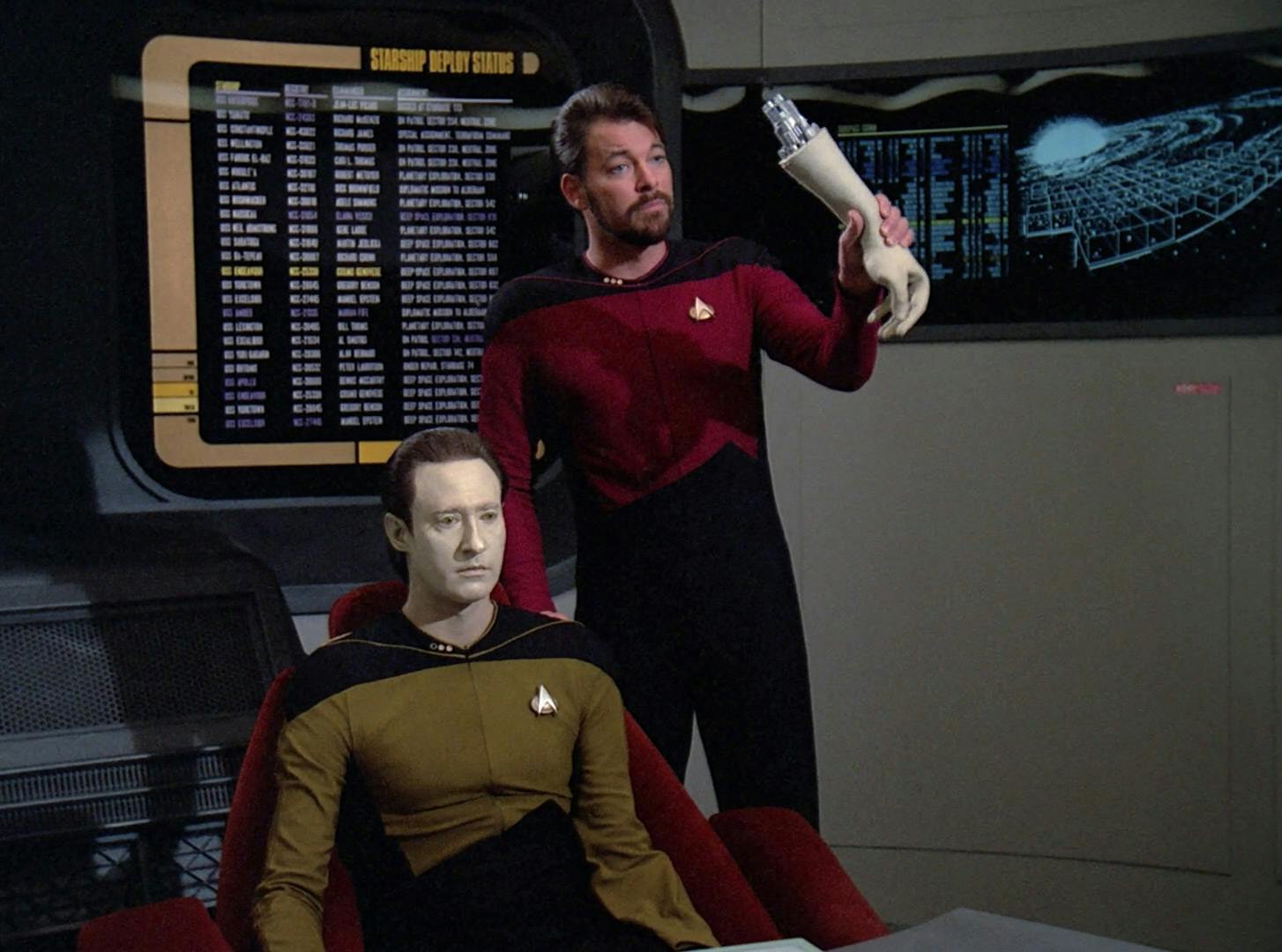
"The Measure of a Man"
StarTrek.com
Undoubtedly, the most excruciating part of the hearing is watching Riker so suddenly and emphatically switch Data off as his last argument against Data’s autonomy. It’s horrible and invasive — which Riker knows — but it is also just theatrical enough to prove to Captain Louvois that he is, indeed, doing his best as the prosecutor. It’s a crushing blow to hear that distinctive click and watch Data fall limp, but it is the most effective card Riker has in his hand to play for Data’s protection.
“Riker’s presentation was devastating,” says Picard. “He almost convinced me.”
Riker’s presentation is devastating, but not ultimately to Data’s case. It’s devastating to Riker himself. It’s an absolutely sickening thing for him to be forced to do. But he does it, and he does it well, at his own expense.
He could have chosen not to. He could have decided to just let the chips fall. He could have banked on the small hope that Maddox knew what he was doing, that Data would not be injured. And he could have, in choosing not to prosecute, implicitly agreed that Data was just “an idea conceived of by the mind of a man, its purpose to serve human needs and interests.”
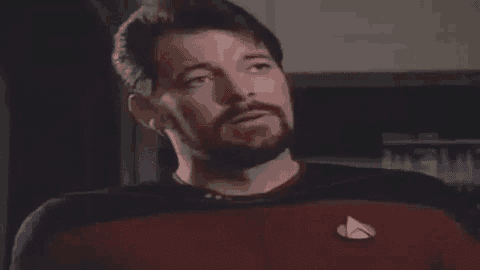
StarTrek.com
An “it.”
A box on wheels.
Pinocchio.
Had Riker done so, it would have been infinitely easier for him, but it would have been life ending for Data. It would have given Maddox the green light to, if his work were successful, make his army of disposable Datas. It would have changed the face of the Federation forever.
The central takeaways of this episode are, of course, that no creature is disposable. Everyone has value. Everyone has the right to self-determination. But there is so much more to “The Measure of a Man” than just those focal points. It’s also about how we love when we are stuck between difficult choices. How we love when that loving gives us back precious little but pain.
At the end of the episode, when Riker believes he has no right to be at Data’s celebration on the holodeck because he very nearly won the hearing, Data responds with his famous, beautiful statement: “Is it not true that, had you refused to prosecute, Captain Louvois would have ruled summarily against me? That action injured you and saved me. I will not forget it.”
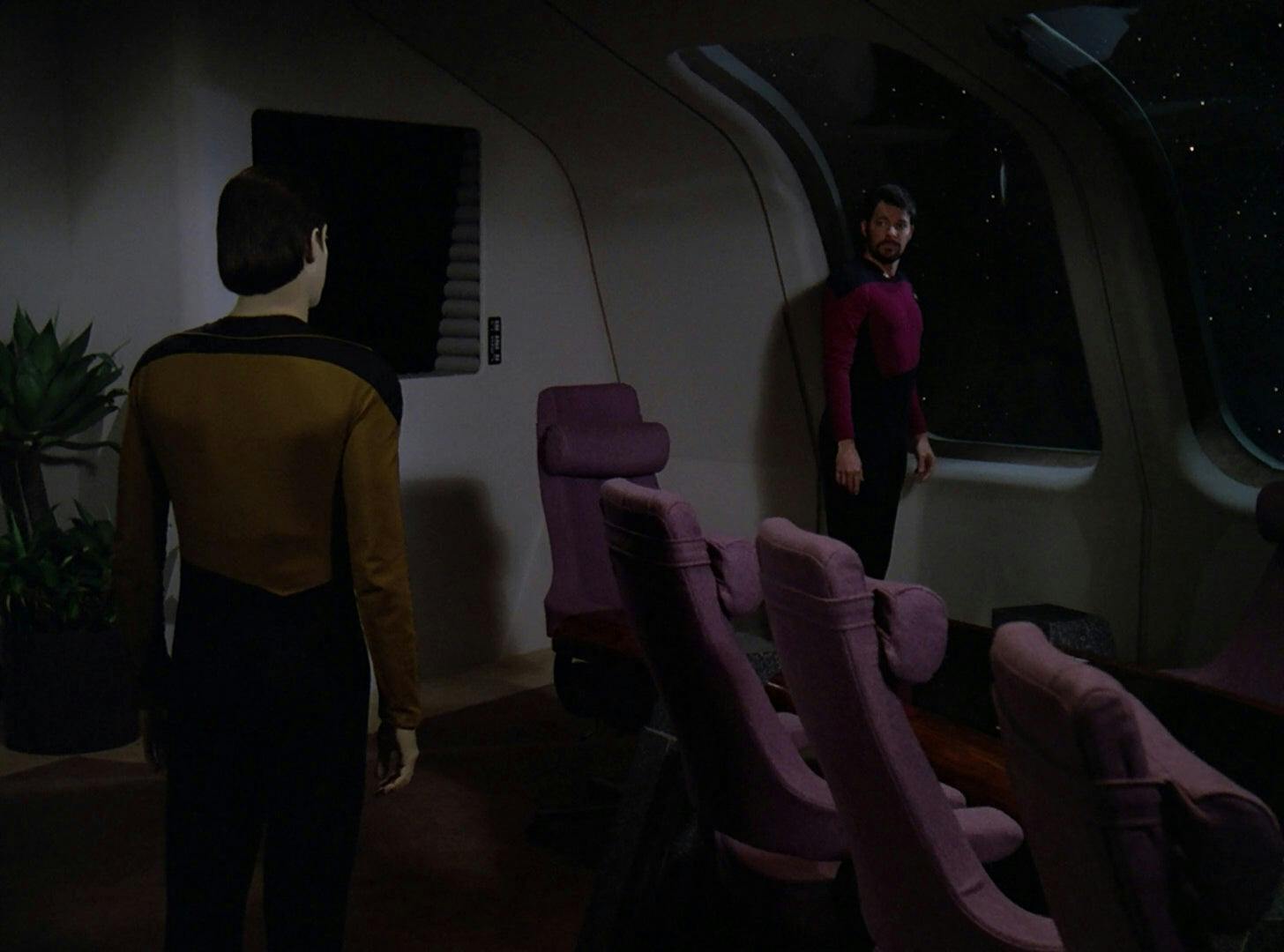
"The Measure of a Man"
StarTrek.com
However, the fact of the matter is, we’re living in the 21st, rather than the 24th Century, and those who we care for self-sacrificially, as Riker did, may not be like Data. They may forget. And, when that happens, it hurts even more than the self-sacrifice did in the first place.
Does this negate the significance and necessity of that kind of love? No. Because everyone has value, and loving is the hard work of life. The kind of love that hurts, the ability to give it when necessary, and the vital ability to receive it with an equally loving heart, are, in many ways, the measure of a (wo)man.
It’s what we see here—the giving in Riker, the receiving in Data. It’s what we should see, and build, in ourselves.

